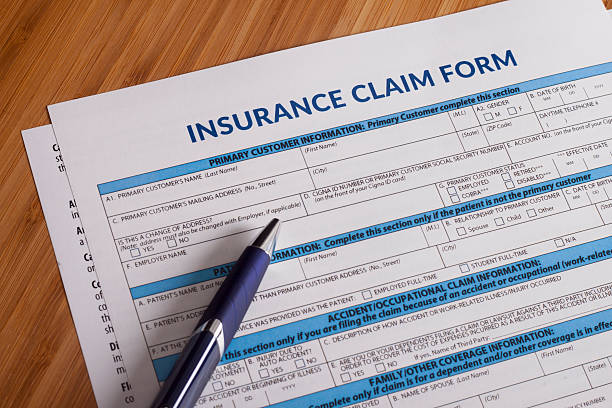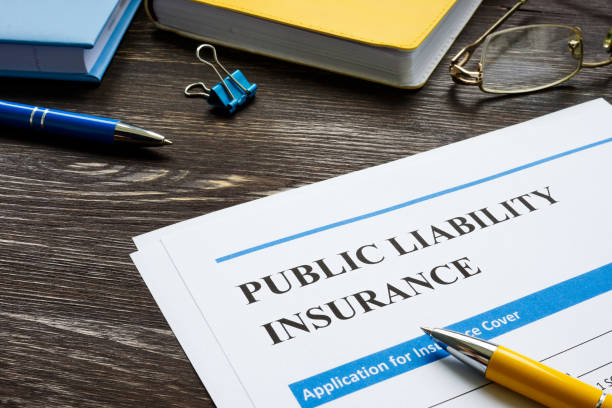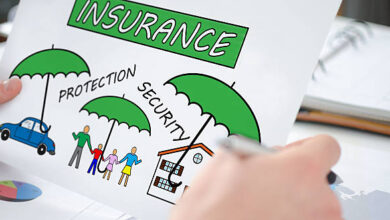
As a business proprietor, you have a large amount on your plate. From managing day-to-day operations to ensuring the success and growth of your company, there are countless responsibilities that require your attention. Amidst all of this, it’s important to protect your business from potential risks and liabilities. That’s where liability insurance comes in. But what does liability insurance cover exactly? In this blog post, we will dive into the details of this essential insurance coverage for businesses and help you understand how it can safeguard your company’s interests.
Understanding the Concept of Liability Insurance
Liability insurance is a crucial form of coverage that every business owner should have. Simply put, it protects your company from potential financial losses that may arise from legal claims made against your business. These claims can stem from a variety of sources, such as bodily injury, property damage, or even slander.
The concept of liability insurance revolves around the idea that accidents and unforeseen events can occur at any time. Regardless of how careful you are as a business owner, there’s always a chance that something could go wrong. Whether it’s a customer slipping and falling on your premises or a disgruntled employee filing a lawsuit, liability insurance is designed to provide financial protection in these situations.
The specific coverage provided by liability insurance can vary depending on the policy you choose. However, in general, liability insurance covers legal costs, medical expenses, property damage, and any potential settlements or judgments that may arise from a lawsuit. It essentially acts as a safety net, ensuring that your business doesn’t suffer financially as a result of unforeseen events.
Overall, understanding the concept of liability insurance is crucial for protecting your business. By having the right coverage in place, you can have peace of mind knowing that your company is safeguarded against potential risks and liabilities.

Different Types of Liability Insurance and What They Cover
Liability insurance comes in different forms, each tailored to cover specific areas of risk that businesses face. Understanding these different types of liability insurance can help you determine which ones are relevant for your business.
General liability insurance is the most common type and provides coverage for third-party bodily injury, property damage, and personal injury claims. This can include slip-and-fall accidents, damage to someone’s property caused by your business operations, or even false advertising claims.
Professional liability insurance, also known as crimes and deletions insurance, is pivotal for businesses that give professional services. It covers claims related to negligence, errors, or omissions in the services you provide. This type of insurance is especially important for professionals such as doctors, lawyers, consultants, and architects.
Product liability insurance is necessary for businesses that manufacture or vend products. It protects against claims arising from product defects that cause harm or injury to consumers. This can include manufacturing defects, design flaws, or failure to provide adequate warning labels.
These are just a few examples of the different types of liability insurance available. It’s important to assess the specific risks your business faces and consult with an insurance professional to determine the most suitable coverage for your needs. Remember, having the right liability insurance can provide the necessary financial protection for your business in case of unforeseen events or legal claims.

Coverage of General Liability Insurance
General liability insurance is a critical form of coverage that provides protection for businesses against a range of risks. It typically covers third-party bodily injury, property damage, and personal injury claims. Let’s delve into the specifics of what general liability insurance can cover for your business.
One aspect covered by general liability insurance is bodily injury claims. This can include slip-and-fall accidents on your premises, injuries caused by faulty equipment, or accidents that occur during the course of business operations. The policy can help cover medical expenses, legal fees, and any potential settlements or judgments related to these claims.
Additionally, general liability insurance can protect your business from property damage claims. If your business operations cause damage to someone else’s property, whether it’s a customer’s vehicle or a neighboring building, your insurance can cover the costs of repairing or replacing the damaged property.
Lastly, general liability insurance can also cover personal injury claims, such as defamation or false advertising. If someone claims that your business has harmed their reputation or misled them in some way, your insurance policy can help with legal fees and any resulting settlements.
In summary, general liability insurance provides crucial coverage for bodily injury, property damage, and personal injury claims made against your business. It serves as a financial safety net, helping to protect your company’s interests and ensuring that unforeseen events don’t derail your business’s success.

Importance of Professional Liability Insurance
Professional liability insurance, also known as errors and omissions insurance, is a crucial form of coverage that every business providing professional services should have. It protects against claims related to negligence, errors, or omissions in the services you provide. This type of insurance is especially important for professionals such as doctors, lawyers, consultants, and architects.
The importance of professional liability insurance lies in the fact that no matter how experienced or skilled you are in your profession, mistakes can happen. A simple oversight or miscommunication can lead to a client suffering financial losses or damages, resulting in a potential lawsuit. Professional liability insurance not only provides financial protection in these situations, but it also covers legal fees and any potential settlements or judgments that may arise.
Without professional liability insurance, your business could face significant financial setbacks and reputational damage. By having this coverage in place, you can have peace of mind knowing that your business is protected against unforeseen errors or omissions that could lead to costly legal disputes. It demonstrates your commitment to delivering quality services and instills trust and confidence in your clients. Ultimately, professional liability insurance is an essential investment for any business providing professional services.

Product Liability Insurance and Its Coverage
Product liability insurance is a crucial form of coverage for businesses that manufacture or sell products. This type of insurance protects against claims that may arise from product defects, which can cause harm or injury to consumers. Whether it’s a manufacturing defect, a design flaw, or failure to provide adequate warning labels, product liability insurance provides financial protection for your business in these situations.
The coverage provided by product liability insurance typically includes legal costs, medical expenses, and potential settlements or judgments that may arise from a lawsuit. This means that if a consumer files a claim against your business due to a defective product causing them harm, your insurance policy can help cover the costs of legal protection and any destruction that may be awarded.
Having product liability insurance is essential for businesses in the manufacturing or retail industry, as it helps protect against the financial risks associated with product-related lawsuits. It provides peace of mind knowing that your business is financially protected in case of unforeseen product defects, and allows you to focus on your company’s growth and success without worrying about potential liabilities.

How Liability Insurance Protects Your Business
Liability insurance is not just a legal requirement for businesses, it is also a vital safeguard for your company’s financial stability. So, how exactly does liability insurance protect your business?
First and foremost, liability insurance provides financial protection in the event of a lawsuit. Legal expenses can quickly add up, and without insurance, these costs could be a significant burden on your business. Liability insurance helps cover the cost of legal defense, ensuring that your company’s assets are protected.
Furthermore, liability insurance can cover potential settlements or judgments that may arise from a lawsuit. In the event that your business is found liable for damages, the insurance policy can help cover the financial obligations. This can save your business from having to pay out large sums of money that could potentially bankrupt your company.
By having liability insurance in place, you can also protect your business’s reputation. Lawsuits can have a detrimental impact on how your company is perceived by customers and partners. Insurance coverage demonstrates that your business takes its responsibilities seriously and is financially prepared to handle unforeseen events. This can help maintain faith and confidence in your brand.

Overall, liability insurance is a critical component of your business’s risk management strategy. It protects your company from financial losses, helps cover legal expenses, and safeguards your reputation. Investing in liability insurance is a proactive measure that allows you to focus on running and growing your business, knowing that you are protected against potential risks and liabilities.



